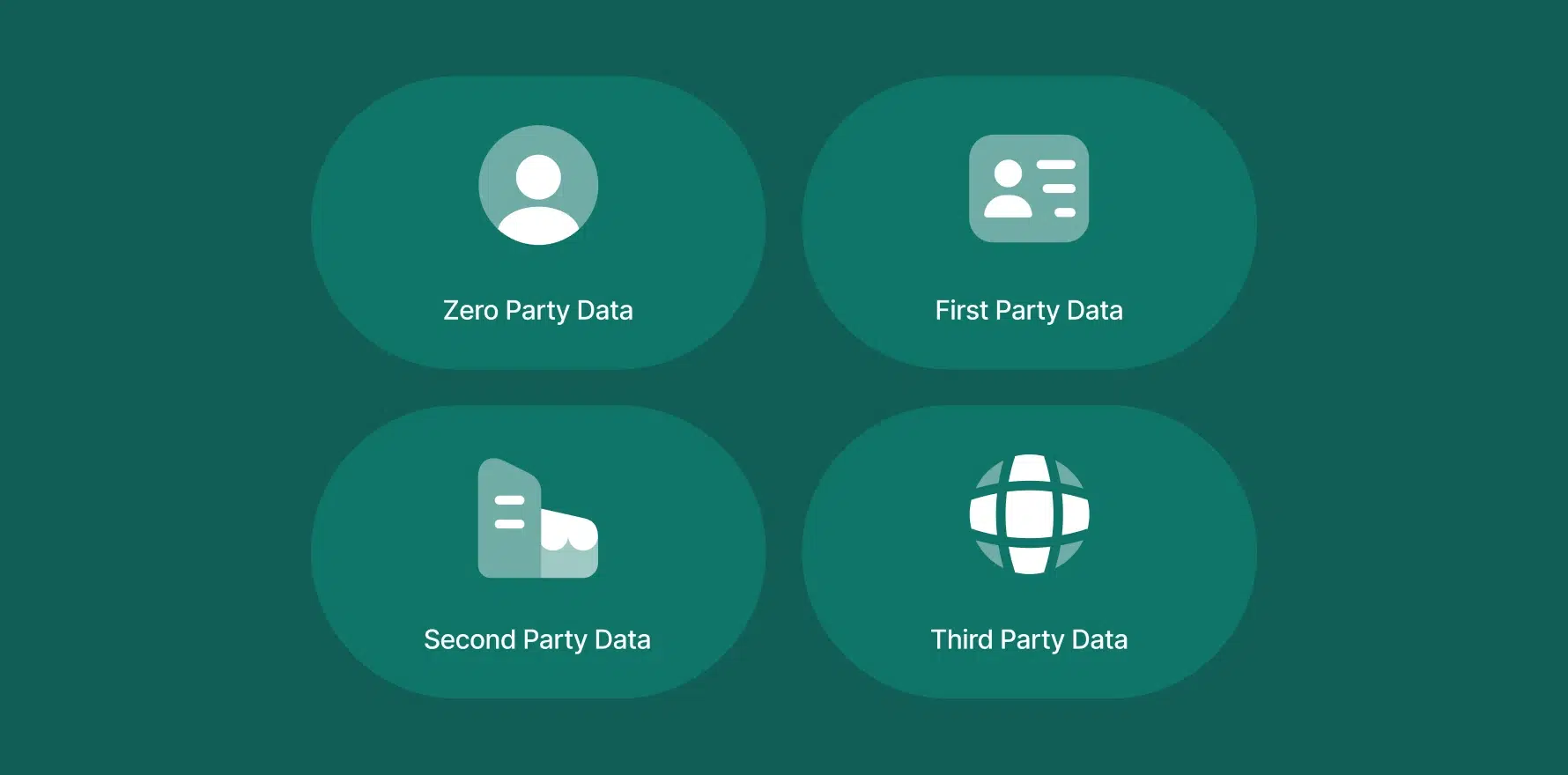The digital landscape is changing rapidly. Traditional cookies are becoming a thing of the past.
The Zero-Party Data Revolution is here, signaling a new era of trust and transparency. As we move away from third-party cookies, businesses need new strategies to connect with their audiences. Zero-party data, voluntarily shared by users, offers a promising solution.
This approach not only respects privacy but also builds stronger relationships. In this post, we will explore the importance of zero-party data in today’s digital world. We will also discuss how it can help businesses thrive in a post-cookie era. Ready to learn how to build trust and stay ahead? Let’s dive into the world of zero-party data.
Quick Navigation
Zero-party Data: A New Frontier
In the ever-evolving digital landscape, the way businesses collect and use data is transforming. The Zero-Party Data revolution is a new frontier that prioritizes user trust and consent. As we move beyond the cookie era, understanding and leveraging Zero-Party Data can give your business a competitive edge.
What Is Zero-party Data?
Zero-Party Data is information that customers willingly and proactively share with your business. This data can include preferences, feedback, interests, and purchase intentions.
It is different from first, second, and third-party data as it is explicitly provided by the user, rather than inferred or collected through tracking mechanisms. This makes Zero-Party Data more reliable and valuable.
Imagine a customer filling out a survey on your website indicating their favorite products and preferred shopping times. That’s Zero-Party Data in action.
Benefits Over Traditional Data
Zero-Party Data offers several advantages over traditional data collection methods. Firstly, it builds trust with your audience. When users know they have control over their data, they are more likely to engage with your brand.
Secondly, it enhances personalization. Since the data is directly provided by the user, it allows for more accurate and tailored marketing strategies. Personalized experiences lead to higher customer satisfaction and loyalty.
Lastly, it ensures compliance with data privacy regulations. With increasing scrutiny on data practices, Zero-Party Data helps you stay ahead of regulatory requirements, reducing the risk of legal issues.
Consider this: How often do you find yourself annoyed by irrelevant ads? With Zero-Party Data, you can minimize that frustration for your customers by delivering content they actually want.
As businesses strive to build meaningful relationships with their customers, Zero-Party Data represents a crucial step forward. It’s not just about collecting data; it’s about creating value for both your business and your customers.

Credit: communities.springernature.com
The End Of Third-party Cookies
The digital marketing landscape is undergoing a significant transformation with the end of third-party cookies. These small data files have long been used to track user behavior across websites. But as privacy concerns grow, major browsers are phasing them out.
This shift is reshaping how brands connect with consumers. It demands new strategies for data collection and personalization. Let’s dive into the impact and challenges this change brings.
Impact On Digital Marketing
The end of third-party cookies is changing digital marketing. Without them, tracking users across sites is harder. This affects ad targeting and measurement.
Brands need to find new ways to gather data. First-party and zero-party data are becoming crucial. These methods build trust by respecting user privacy.
Imagine visiting a site and sharing your preferences voluntarily. This zero-party data is more accurate. It helps brands create personalized experiences without invasive tracking.
Challenges For Advertisers
Advertisers face significant hurdles with the cookie phase-out. The biggest challenge is finding reliable data sources. Without third-party cookies, tracking user journeys becomes tough.
Ad effectiveness measurement is another issue. How do you know if your campaign worked without cross-site tracking? Brands must adapt their strategies to ensure accurate metrics.
Consider small businesses that rely on targeted ads for growth. They need cost-effective solutions to gather zero-party data. Educating consumers about data privacy will be key.
Are you ready to embrace this change? How will you adapt your marketing strategies in a cookie-less world?
Building Consumer Trust
Zero-party data offers businesses a chance to gain consumer trust by collecting information directly from users. This approach respects privacy and enhances transparency. Brands can create personalized experiences without relying on third-party cookies.
Building Consumer Trust In the post-cookie era, building consumer trust is more critical than ever. As businesses shift towards zero-party data, they must foster transparency and control to win their customers’ confidence. This blog section explores how to achieve that trust and why personalized experiences play a crucial role.Transparency And Control
Transparency is key to earning trust. When you collect data, always be clear about what you’re gathering and why. Let your customers know how their information will be used. Give them control over their data. Allow them to opt-in or opt-out easily. Make privacy settings straightforward to find and adjust. This empowerment builds a sense of security and respect. I’ve experienced this firsthand. I once subscribed to a newsletter that allowed me to choose the frequency of emails. Knowing I had control over my inbox made me trust the brand more.Personalized Experiences
Personalized experiences are another way to build trust. When you use zero-party data to tailor content, you show you value your customers’ preferences. This makes interactions feel unique and thoughtful. Consider how Netflix offers recommendations based on your viewing history. This personalized touch keeps you engaged and loyal. Ask yourself, how can you use the data your customers willingly share to enhance their experience? Whether it’s product recommendations or custom content, personalization can significantly boost trust. In summary, building consumer trust in a post-cookie era revolves around transparency, control, and personalization. When your customers feel informed and valued, they are more likely to trust and engage with your brand.
Credit: lifesight.io
Implementing Zero-party Strategies
Collecting zero-party data helps build trust with users in the post-cookie era. This approach involves users willingly sharing their information. It ensures transparency and personalized experiences.
Implementing Zero-Party Strategies can significantly enhance your relationship with customers. With the decline of third-party cookies, it’s crucial to collect data directly from your audience. This approach builds trust and fosters a more personalized user experience.Collecting Data Ethically
Collecting zero-party data starts with transparency. Inform your users why you need their data and how it will benefit them. This honesty can enhance trust and engagement. Create simple and engaging surveys or quizzes. Ask questions that genuinely interest your audience. For example, a fashion retailer could ask about style preferences to tailor recommendations. Respect user privacy. Ensure you have robust data protection measures in place. Comply with regulations like GDPR to avoid legal issues and maintain credibility.Leveraging Technology
Use technology to streamline data collection. Implement chatbots that can gather insights during customer interactions. These tools can ask relevant questions and store responses efficiently. CRM systems are invaluable. They help manage and analyze zero-party data effectively. Use CRM to segment your audience and personalize communication. Automation tools can enhance your data strategy. They can send personalized emails based on the preferences your users share. This not only improves engagement but also conversion rates. Think about the last time you willingly shared personal preferences with a brand. What motivated you? Was it the promise of better recommendations or a more personalized experience? Your customers are no different. They seek value in exchange for their data. Implementing zero-party strategies can meet their expectations and strengthen your brand’s relationship with them.
Credit: www.onetrust.com
Conclusion
Zero-party data empowers businesses to build trust. Consumers willingly share information. This approach respects privacy and fosters loyalty. Businesses can create personalized experiences. These experiences resonate with customers deeply. In a post-cookie world, trust matters most. Zero-party data offers a clear solution.
Embrace this strategy to stay ahead. Your customers will thank you. And they will return.
